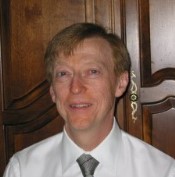Earned Schedule at 20 Years
A Recap
REPORT
By Robert Van De Velde, PhD
Ontario, Canada
Abstract
On March 8, 2023, the Project Governance and Control Symposium (Australia) hosted a Webinar to mark the 20th Anniversary of Earned Schedule.
It was in 2003 that Walt Lipke published “Schedule Is Different” (Measurable News, March & Summer). It sparked two decades of research, development, and implementation.
The Webinar brought together eight experts on Earned Schedule. Over a period of four hours in two separate showings, the experts covered a broad diversity of topics related to Earned Schedule.
Some focused on the history of Earned Schedule. Others concentrated on its practice, showing how ES is being used to control both traditional and Agile projects. Still others captured the results of research efforts, both academic and informal.
What emerged was a picture of a vibrant, growing community of use and support for Earned Schedule.
Here is a recap of the event.
1 Walt Lipke – Earned Schedule, 20 years of Innovation
Walt acknowledged the global contribution to the development and furtherance of Earned Schedule over the past 20 years.
He followed with a brief history of how “thinking different” led him to Earned Schedule.
- At the start: successful (and unsuccessful) application of EVM
- Difficulty applying Statistical Quality Control to projects—lack of appropriate data
- Shortfalls in the use of EVM’s SPI
- Functions didn’t fit EVM’s “smooth performance curves” [PV and EV]
- But, the curves could be viewed as a collection of discrete points
- That is, a series of accumulated data—the sums of Planned Value and Earned Value
- A key insight: Earned Value could be mapped to Planned Value to determine the amount of Planned Duration that was earned
- Big question: what to do when the duration earned did not align exactly with a period end
- Trigonometry to the rescue: proof that cost values are proportional to time values
- Deduction of the ES formula: ES = C[omplete] + I[nterpolation], where C equals the periods in which EV >= PVC and I= (EV-PVC)/(PVC+1-PVC)
Walt confirmed the theory with empirical studies. Moving forward, he “built on the new, rather than fighting the old”.
Walt then gave an overview of Earned Schedule’s use.
There are performance indicators and outcome forecasts. There are metrics for project recovery and measurements of schedule adherence. There’s statistical analysis of past performance and estimates of future impacts.
The metrics can be used to manage the current schedule and plan future schedules. As time goes on, you can build an archive of results. You can use them to improve your schedule execution and planning.
Walt noted that there are resources available for learning and applying Earned Schedule. They include study guides, videos, and tools.
Walt’s expectation is that, with greater awareness, application of Earned Schedule will grow.
Final thoughts:
More…
To read entire report, click here
How to cite this work: Van de Velde, R. (2023). PGCS Webinar: Earned Schedule at 20 Years–A Recap, PM World Journal, Volume XII, Issue V. May. Available online at: https://pmworldlibrary.net/wp-content/uploads/2023/04/pmwj129-May2023-Van-De-Velde-Earned-Schedule-at-20-years-report.pdf
About the Author

Robert Van De Velde, PhD
Ontario, Canada
![]()
Robert Van De Velde, Ph.D. is a practitioner. In the past 35 years, he has served as PM or PMO-lead on over two dozen projects and programs. They have ranged in size from six to nine figures and have been completed in domains from business to government.
Rob discovered Earned Schedule in 2007 and began using it on his projects. It worked so well that he started a company, ProjectFlightDeck, to make and sell software focused exclusively on Earned Schedule (see https://ProjectFlightDeck.com/Products.php).
Rob shares his ES knowledge and experience through a blog (EarnedScheduleExchange.com), vlog (EarnedsSheduleAcademy.com), and professional journals such as Project Management World Journal.
He also posts on LinkedIn groups, hashtags, and his company site (ProjectFlightDeck).
To contact him, email Robert.VanDeVelde@ProjectFlightDeck.com.
For a full bio, see https://www.linkedin.com/in/robvandevelde. While you’re there, please follow us at linkedin.com/company/projectflightdeck









